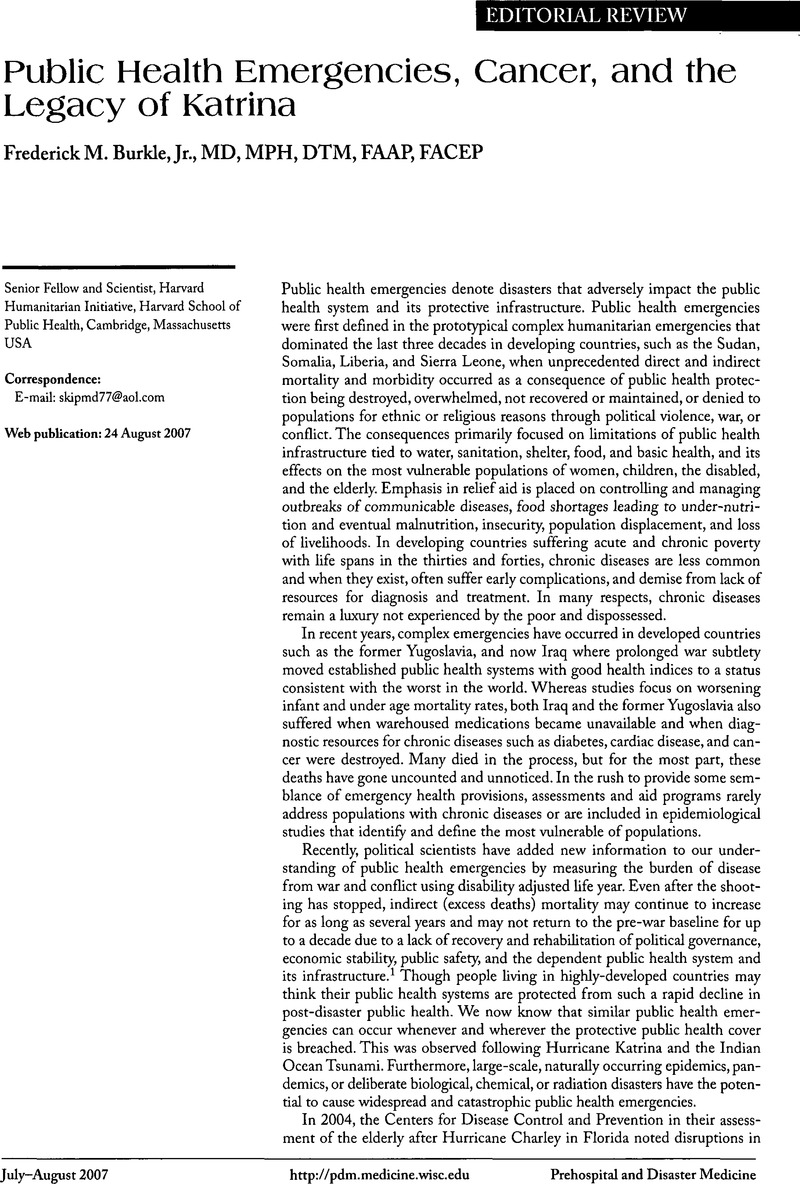Crossref Citations
This article has been cited by the following publications. This list is generated based on data provided by Crossref.
Burkle, Frederick M.
and
Greenough, P. Gregg
2008.
Impact of Public Health Emergencies on Modern Disaster Taxonomy, Planning, and Response.
Disaster Medicine and Public Health Preparedness,
Vol. 2,
Issue. 3,
p.
192.
Ryan, Benjamin J.
Franklin, Richard C.
Burkle, Frederick M.
Watt, Kerrianne
Aitken, Peter
Smith, Erin C.
and
Leggat, Peter
2015.
Analyzing the Impact of Severe Tropical Cyclone Yasi on Public Health Infrastructure and the Management of Noncommunicable Diseases.
Prehospital and Disaster Medicine,
Vol. 30,
Issue. 1,
p.
28.
Verna, Lucilla
Porzio, Giampiero
Napoleoni, Luca
Micolucci, Giovanna
Silva, Rosa Rita
and
Giusti, Raffaele
2017.
Caring for Cancer Patients After the Italian Earthquakes: A Proposal From the Field.
Disaster Medicine and Public Health Preparedness,
Vol. 11,
Issue. 1,
p.
4.
Man, Ralph Xiu-Gee
Lack, David A
Wyatt, Charlotte E
and
Murray, Virginia
2018.
The effect of natural disasters on cancer care: a systematic review.
The Lancet Oncology,
Vol. 19,
Issue. 9,
p.
e482.



